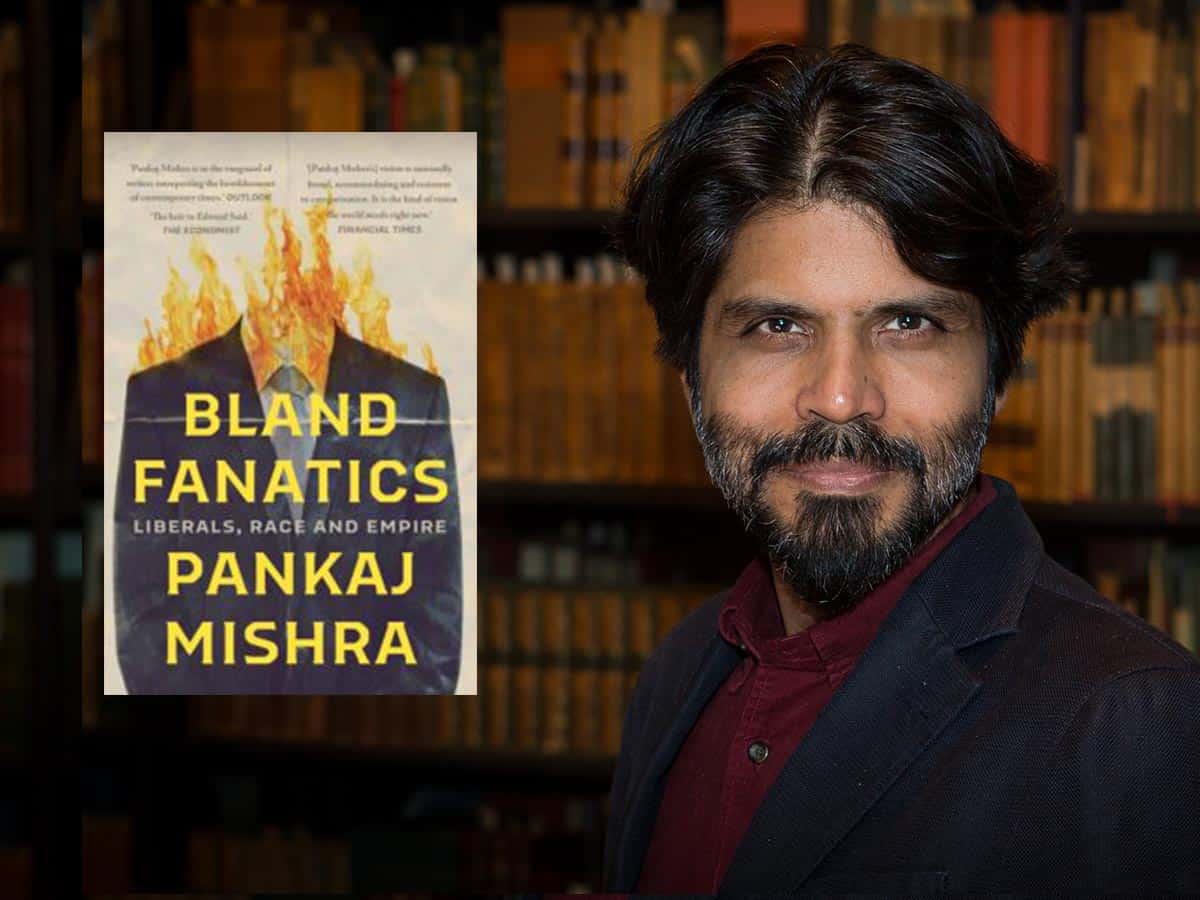
Pankaj Mishra’s is a strong and occasionally angry voice from the resurgent left. Deeply anchored in western history and political philosophy, he robustly challenges the West’s self-serving mythologies of progress and achievement founded on liberal values, and exposes the rampant racism, intolerance and violence that have defined its history over the past two centuries.
This book, a collection of 16 essays, draws its title from an observation of American theologian and political commentator, Reinhold Niebuhr, who, in 1957, spoke of the “bland fanatics of western civilisation” who see “the highly contingent achievements of our culture as the final form and norm of human existence”. Mr Mishra relentlessly teases out the “misrepresentations and downright falsehoods” that have shaped the western narrative of human history.
Liberalism, originating in the Enlightenment and enshrining within itself the values of freedom, equality, democracy and rule of law, has been projected as the cornerstone of western achievement. In fact, it has been touted as the principle that has made the West inherently superior to the peoples colonised in Asia, Africa and Latin America. And, yet, what the narrative fails to include is the racism, violence and destruction that were the lived experiences of the colonised.
The book:
Bland Fanatics: Liberals, Race and Empire
Author: Pankaj Mishra
Publisher: Juggernaut Books
Pages: 218 Price: Rs 599
Mr Mishra recalls the “belligerent culture of imperial domination” that motivated even the neo-colonialists of the late 19th century and led to the large-scale killing of native communities in South West Africa by the Germans and the deaths of eight million Africans in the Congo during the “ownership” of that territory by the Belgian king. The Americans, the last to enter the colonial enterprise, enthusiastically killed 200,000 civilians in the Philippines.
Racism was central to the colonial enterprise. Mr Mishra quotes Hannah Arendt pointing out that European colonialism had led to the reordering of “humanity into master and slave races”. Max Weber, looking at the millions of non-white soldiers who had come from the colonies to Europe to fight in World War I, described them as “a dross of African and Asiatic savages and all the world’s rabble of thieves and lumpens”.
Woodrow Wilson, author of the Fourteen Points, shared the racist hauteur of his European colleagues. He saw the colonised peoples as “children” as against “we [who] are men in these deep matters of government and justice”. Wilson’s great “rhetorical achievement” was that he pioneered the projecting of the US’ foreign military interventions in pursuit of its own interests as a moral and international responsibility, a tradition that continues to this day.
Accompanying these destructive interventions is the “drumbeat” of western values that camouflage persistent racism and violence, expressed most recently in Islamophobia and the “Global War on Terror” that provided the license for military assault, widespread death and destruction and state-approved torture. Mr Mishra quotes James Baldwin who said in 1967: “A racist society can’t but fight a racist war.” This, Mr Mishra says, gave the sanction for “black and brown bodies [to] be seized, broken and destroyed outside all norms and laws of war”.
Mr Mishra points out that western liberal intellectuals are now sensing a serious challenge to the West-led world order, defined by democracy, free markets and globalisation, as evidenced by the Brexit vote and the electoral triumph of Donald Trump in 2016.
The western hegemonic order had been founded on the twin principles of “ethnic homogeneity at home and racial superiority abroad”. Both these norms are no longer tenable. Facing the challenge of emerging powers abroad, western countries are also home to large numbers of non-white communities that are demanding an equitable space for opportunity and dignity for themselves and their children.
This has created a “moral panic” in several countries, propelling far-right movements to national prominence and compelling apparent liberals to grapple with issues of ethnic and cultural identity, in many instances setting off western identity against the Muslim as the “Other”. Thus, in good Orientalist tradition, the British author, Martin Amis has thoughtfully noted that “the impulse towards rational inquiry is by now very weak in the rank and file of the Muslim male”.
Writing in his 2018 essay, Mr Mishra had noted the “scale of the left’s defeat in recent decades”; two years later, he senses instead that “a great correction is under way” – the triumphalist narratives of British and American exceptionalism, he asserts, are being exposed as lies.
The coronavirus pandemic has exposed the economic malaise in these states — heavily indebted, bailing out of corporations with tax-payers’ money, impoverishment of the working classes and the undermining of the national health systems. Having caused the deaths of hundreds of thousands abroad, in the pandemic these states have turned mass-murderous at home. This heralds new struggles, Mr Mishra predicts, for freedom, equality and dignity.
The essays included in this collection date from between 2008 and 2019. Not all have much topical value: the one on Islamophobia is from 2009. Do we really need essays on Jordan Peterson and Samuel Moyn (who?)? Or a review of Salman Rushdie’s Joseph Anton from 2012? And, should India have been fobbed off with a review of the book on Mumbai’s slum-dwellers by Katherine Boo from 2012?
More seriously, Mr Mishra, in his Introduction, says the essays were written in response to Anglo-American delusions that climaxed in Brexit, the election of Donald Trump and “the calamitous response to the COVID-19 pandemic”. Given that all the essays were written well before the pandemic, the last remark is gratuitous. In fact, the book would have greatly benefitted from a substantial concluding essay where Mr Mishra could have shared with us his thoughts on four years of Donald Trump, five years of Narendra Modi, one year of Boris Johnson, and an update on the situation in Europe.
Mr Mishra wields a strong pen, making his points with knowledge, clarity and conviction. His exposure of western hypocrisy, self-centredness and violence is particularly timely, when a cabal in India is pushing for an alliance with western powers on the basis of “shared values”.
Talmiz Ahmad is an author and former Indian ambassador to Saudi Arabia, Oman and the UAE. He holds the Ram Sathe Chair for International Studies at the Symbiosis International University in Pune.

